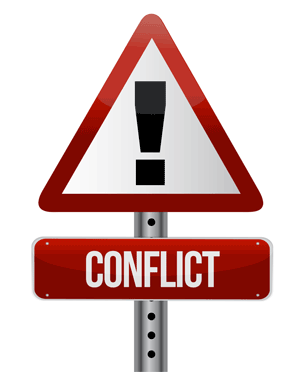 Self-care, it turns out, takes a lot more effort and energy than just getting a mani/pedi, going to a new restaurant or getting a massage. It means truly accepting accountability for your physical, mental, and emotional well-being, and making decisions that support it. Self-care asks us to establish boundaries and practice (at least some) discipline so that we give ourselves the best chance at happiness. It requires us to tune in and get to know our thought patterns, desires, triggers, and fundamental needs so that we can properly anticipate and manage them. Self-care is the very definition of adulting. It puts the ball in our court and empowers us to go get what we need to feel whole instead of expecting anyone else to guess what it is and magically deliver it on a silver platter.
This certainly does not mean we can’t ask for help or that we shouldn’t look for support from people in our lives. It’s only a problem if/when we start believing our own sense of worth, fulfillment, and happiness rests solely on their shoulders. When we expect others to take care of our core needs, we become the victims who need to be rescued and set our relationships up for failure. Solid, healthy, mutually beneficial friendships and marriages are formed when two whole people choose to be together to support and elevate one another… not fix or “complete” each other.
Will Smith does a great job talking about this in this brief Facebook video – check it out!
What can you do today to take action and find solutions to your problems and feel like you are creating a life you love? What can you do today to connect you to your true passions and get more of a sense of who you are?
How many times have you justified spending money on a new phone or outfit or fun activity but decided that it didn’t make you happy? Are you putting off talking to a therapist or seeing an acupuncturist to help with more substantial problems because was just too expensive? How many times have you prioritized work over rest or decided against getting help because you’ve felt you should be able to do it all yourself? And how many times have you experienced a pang of resentment towards someone who’s not “doing their job” taking care of your needs?
” Caring for myself is not self-indulgence, it is self-preservation, and that is an act of political warfare.” – Audre Lorde
I invite you to re-visit the concept of self-care and consider it as an act of boldness and power. When we take accountability for our own health and happiness, we take control of our lives AND give the people around us the freedom they need to be themselves and love us how they know best. When you stop expecting someone to fix your problems, you get a deeper sense of being able to ENJOY each other.
The better you are, the less you demand, and the more you receive. Taking care of yourself can improve your life as well as your relationships. Do it today!
Self-care, it turns out, takes a lot more effort and energy than just getting a mani/pedi, going to a new restaurant or getting a massage. It means truly accepting accountability for your physical, mental, and emotional well-being, and making decisions that support it. Self-care asks us to establish boundaries and practice (at least some) discipline so that we give ourselves the best chance at happiness. It requires us to tune in and get to know our thought patterns, desires, triggers, and fundamental needs so that we can properly anticipate and manage them. Self-care is the very definition of adulting. It puts the ball in our court and empowers us to go get what we need to feel whole instead of expecting anyone else to guess what it is and magically deliver it on a silver platter.
This certainly does not mean we can’t ask for help or that we shouldn’t look for support from people in our lives. It’s only a problem if/when we start believing our own sense of worth, fulfillment, and happiness rests solely on their shoulders. When we expect others to take care of our core needs, we become the victims who need to be rescued and set our relationships up for failure. Solid, healthy, mutually beneficial friendships and marriages are formed when two whole people choose to be together to support and elevate one another… not fix or “complete” each other.
Will Smith does a great job talking about this in this brief Facebook video – check it out!
What can you do today to take action and find solutions to your problems and feel like you are creating a life you love? What can you do today to connect you to your true passions and get more of a sense of who you are?
How many times have you justified spending money on a new phone or outfit or fun activity but decided that it didn’t make you happy? Are you putting off talking to a therapist or seeing an acupuncturist to help with more substantial problems because was just too expensive? How many times have you prioritized work over rest or decided against getting help because you’ve felt you should be able to do it all yourself? And how many times have you experienced a pang of resentment towards someone who’s not “doing their job” taking care of your needs?
” Caring for myself is not self-indulgence, it is self-preservation, and that is an act of political warfare.” – Audre Lorde
I invite you to re-visit the concept of self-care and consider it as an act of boldness and power. When we take accountability for our own health and happiness, we take control of our lives AND give the people around us the freedom they need to be themselves and love us how they know best. When you stop expecting someone to fix your problems, you get a deeper sense of being able to ENJOY each other.
The better you are, the less you demand, and the more you receive. Taking care of yourself can improve your life as well as your relationships. Do it today!
Self Care and Relationships
 Self-care, it turns out, takes a lot more effort and energy than just getting a mani/pedi, going to a new restaurant or getting a massage. It means truly accepting accountability for your physical, mental, and emotional well-being, and making decisions that support it. Self-care asks us to establish boundaries and practice (at least some) discipline so that we give ourselves the best chance at happiness. It requires us to tune in and get to know our thought patterns, desires, triggers, and fundamental needs so that we can properly anticipate and manage them. Self-care is the very definition of adulting. It puts the ball in our court and empowers us to go get what we need to feel whole instead of expecting anyone else to guess what it is and magically deliver it on a silver platter.
This certainly does not mean we can’t ask for help or that we shouldn’t look for support from people in our lives. It’s only a problem if/when we start believing our own sense of worth, fulfillment, and happiness rests solely on their shoulders. When we expect others to take care of our core needs, we become the victims who need to be rescued and set our relationships up for failure. Solid, healthy, mutually beneficial friendships and marriages are formed when two whole people choose to be together to support and elevate one another… not fix or “complete” each other.
Will Smith does a great job talking about this in this brief Facebook video – check it out!
What can you do today to take action and find solutions to your problems and feel like you are creating a life you love? What can you do today to connect you to your true passions and get more of a sense of who you are?
How many times have you justified spending money on a new phone or outfit or fun activity but decided that it didn’t make you happy? Are you putting off talking to a therapist or seeing an acupuncturist to help with more substantial problems because was just too expensive? How many times have you prioritized work over rest or decided against getting help because you’ve felt you should be able to do it all yourself? And how many times have you experienced a pang of resentment towards someone who’s not “doing their job” taking care of your needs?
” Caring for myself is not self-indulgence, it is self-preservation, and that is an act of political warfare.” – Audre Lorde
I invite you to re-visit the concept of self-care and consider it as an act of boldness and power. When we take accountability for our own health and happiness, we take control of our lives AND give the people around us the freedom they need to be themselves and love us how they know best. When you stop expecting someone to fix your problems, you get a deeper sense of being able to ENJOY each other.
The better you are, the less you demand, and the more you receive. Taking care of yourself can improve your life as well as your relationships. Do it today!
Self-care, it turns out, takes a lot more effort and energy than just getting a mani/pedi, going to a new restaurant or getting a massage. It means truly accepting accountability for your physical, mental, and emotional well-being, and making decisions that support it. Self-care asks us to establish boundaries and practice (at least some) discipline so that we give ourselves the best chance at happiness. It requires us to tune in and get to know our thought patterns, desires, triggers, and fundamental needs so that we can properly anticipate and manage them. Self-care is the very definition of adulting. It puts the ball in our court and empowers us to go get what we need to feel whole instead of expecting anyone else to guess what it is and magically deliver it on a silver platter.
This certainly does not mean we can’t ask for help or that we shouldn’t look for support from people in our lives. It’s only a problem if/when we start believing our own sense of worth, fulfillment, and happiness rests solely on their shoulders. When we expect others to take care of our core needs, we become the victims who need to be rescued and set our relationships up for failure. Solid, healthy, mutually beneficial friendships and marriages are formed when two whole people choose to be together to support and elevate one another… not fix or “complete” each other.
Will Smith does a great job talking about this in this brief Facebook video – check it out!
What can you do today to take action and find solutions to your problems and feel like you are creating a life you love? What can you do today to connect you to your true passions and get more of a sense of who you are?
How many times have you justified spending money on a new phone or outfit or fun activity but decided that it didn’t make you happy? Are you putting off talking to a therapist or seeing an acupuncturist to help with more substantial problems because was just too expensive? How many times have you prioritized work over rest or decided against getting help because you’ve felt you should be able to do it all yourself? And how many times have you experienced a pang of resentment towards someone who’s not “doing their job” taking care of your needs?
” Caring for myself is not self-indulgence, it is self-preservation, and that is an act of political warfare.” – Audre Lorde
I invite you to re-visit the concept of self-care and consider it as an act of boldness and power. When we take accountability for our own health and happiness, we take control of our lives AND give the people around us the freedom they need to be themselves and love us how they know best. When you stop expecting someone to fix your problems, you get a deeper sense of being able to ENJOY each other.
The better you are, the less you demand, and the more you receive. Taking care of yourself can improve your life as well as your relationships. Do it today!

 A problem doesn’t mean life is negative or horrible. All people have problems to work through.
To solve the problem, we first have to make sure the problem is ours, and not someone else’s. If it isn’t our problem, we need to set a boundary.
Then we seek the best solution. This may mean setting a goal, asking for help, or gathering more information, taking an action or letting go.
We can face and solve problems, knowing they will appear regularly. Avoiding and procrastinating dealing with a problem makes us more stressed. It often takes more energy to run from a problem rather than to face it. It can be a lot easier when we trust our ability to solve problems and not feel like we are so alone.
Do your best to face today’s unresolved issues and problems and do what you can. Don’t worry needlessly about tomorrow’s problems, because when they appear, we’ll have the resources necessary to solve them. We make the most of living in the present when we face and solve problems as they appear, and not worry needlessly on problems that haven’t happened.
A problem doesn’t mean life is negative or horrible. All people have problems to work through.
To solve the problem, we first have to make sure the problem is ours, and not someone else’s. If it isn’t our problem, we need to set a boundary.
Then we seek the best solution. This may mean setting a goal, asking for help, or gathering more information, taking an action or letting go.
We can face and solve problems, knowing they will appear regularly. Avoiding and procrastinating dealing with a problem makes us more stressed. It often takes more energy to run from a problem rather than to face it. It can be a lot easier when we trust our ability to solve problems and not feel like we are so alone.
Do your best to face today’s unresolved issues and problems and do what you can. Don’t worry needlessly about tomorrow’s problems, because when they appear, we’ll have the resources necessary to solve them. We make the most of living in the present when we face and solve problems as they appear, and not worry needlessly on problems that haven’t happened. To enjoy the holidays fully, some of us need to give up the blocks and resistance that prevent us from experiencing the magic and possibilities of being fully present and fully able to accept the good that is all around us. Blocks such as anger, resentment and blaming can get in our way. Most people have someone in their life who they feel has treated them wrong. They hurt our feelings, left us in a difficult situation, maybe even betrayed us. Maybe we were treated in a way that we never thought possible, or never thought possible by that particular person. But it happened.
We can never change what happened in the past. Our acceptance of their behavior can put us back in control to make decisions that are best for us. Once we face and accept the truth of what happened, we can stop struggling. We don’t have to let someone else’s poor, neglectful or abusive behavior control our happiness. We can develop healthy boundaries, have healthy friends and avoid toxic people. Let go of people, thoughts and behaviors that don’t serve you.
It’s never OK for someone to hurt someone else. Never. Forgiveness isn’t about saying what happened is OK. Forgiveness is about letting go of the negative hold it has on you.
It’s time to grieve our losses and let go of our blocks to personal freedom. Don’t give your happiness over to someone else.
Once we fully grieve our losses, feel our pain, accept what happened and forgive, we can feel joy and love once again. Let go of blocks that prevent you from living fully and having a good time. It is our responsibility to make our life work and make it work well. Be good to yourself and by being open to the celebrations, joy, warmth and love that you see all around you. Enjoy the holidays! You can choose to make them a great time for you!
To enjoy the holidays fully, some of us need to give up the blocks and resistance that prevent us from experiencing the magic and possibilities of being fully present and fully able to accept the good that is all around us. Blocks such as anger, resentment and blaming can get in our way. Most people have someone in their life who they feel has treated them wrong. They hurt our feelings, left us in a difficult situation, maybe even betrayed us. Maybe we were treated in a way that we never thought possible, or never thought possible by that particular person. But it happened.
We can never change what happened in the past. Our acceptance of their behavior can put us back in control to make decisions that are best for us. Once we face and accept the truth of what happened, we can stop struggling. We don’t have to let someone else’s poor, neglectful or abusive behavior control our happiness. We can develop healthy boundaries, have healthy friends and avoid toxic people. Let go of people, thoughts and behaviors that don’t serve you.
It’s never OK for someone to hurt someone else. Never. Forgiveness isn’t about saying what happened is OK. Forgiveness is about letting go of the negative hold it has on you.
It’s time to grieve our losses and let go of our blocks to personal freedom. Don’t give your happiness over to someone else.
Once we fully grieve our losses, feel our pain, accept what happened and forgive, we can feel joy and love once again. Let go of blocks that prevent you from living fully and having a good time. It is our responsibility to make our life work and make it work well. Be good to yourself and by being open to the celebrations, joy, warmth and love that you see all around you. Enjoy the holidays! You can choose to make them a great time for you!
 When a couples come to my office for therapy, I usually ask, “What is it that keeps you together?” Answers range from convenience, sex, money, companionship to the most frequent response, “We love each other”. The problem with this response is that love means different things to different people. Sometimes the expectations that one associates with love can add to the relationships conflicts. i.e. “If you loved me you would do this ..…or you would feel this ..…” The second question I ask is, “Do you trust each other?” Interestingly, many people emphatically say “No, we love each other but we don’t trust each other”. Trust and good communication are the two main ingredients necessary for intimacy. Therefore, love without trust is not enough. Without trust we don’t feel safe. Many people have problems with trust. If handling things alone and taking care of yourself was what you had to do as a child, it may feel unfamiliar and scary to be in a close relationship. On the other hand, come people cling to those they love, being overly jealous and unable to tolerate a healthy level of independence.
Intimacy isn’t something you can experience alone. By it’s very nature, it assumes a relationship and a relationship means risk. The other half of any relationship is a person you can’t control. But in a loving relationship, you and your partner can create intimacy with excitement, passion, good communication and trust. Rewards are great when you are willing to work together.
The following is an INTIMACY ASSESSMENT meant to be used as a guide to assess intimacy in your relationship. Think about a partner or a close friend and ask yourself the following:
When a couples come to my office for therapy, I usually ask, “What is it that keeps you together?” Answers range from convenience, sex, money, companionship to the most frequent response, “We love each other”. The problem with this response is that love means different things to different people. Sometimes the expectations that one associates with love can add to the relationships conflicts. i.e. “If you loved me you would do this ..…or you would feel this ..…” The second question I ask is, “Do you trust each other?” Interestingly, many people emphatically say “No, we love each other but we don’t trust each other”. Trust and good communication are the two main ingredients necessary for intimacy. Therefore, love without trust is not enough. Without trust we don’t feel safe. Many people have problems with trust. If handling things alone and taking care of yourself was what you had to do as a child, it may feel unfamiliar and scary to be in a close relationship. On the other hand, come people cling to those they love, being overly jealous and unable to tolerate a healthy level of independence.
Intimacy isn’t something you can experience alone. By it’s very nature, it assumes a relationship and a relationship means risk. The other half of any relationship is a person you can’t control. But in a loving relationship, you and your partner can create intimacy with excitement, passion, good communication and trust. Rewards are great when you are willing to work together.
The following is an INTIMACY ASSESSMENT meant to be used as a guide to assess intimacy in your relationship. Think about a partner or a close friend and ask yourself the following:
 “Your playing small does not serve the world. There is nothing enlightened about shrinking so that other people will not feel insecure around you. We are all meant to shine, as children do. It is not just in some of us: it is in everyone, and as we let our light shine, we unconsciously give others permission to the same. As we are liberated from our fear, our presence automatically liberates others.”
~ Marianne Williamson
“Your playing small does not serve the world. There is nothing enlightened about shrinking so that other people will not feel insecure around you. We are all meant to shine, as children do. It is not just in some of us: it is in everyone, and as we let our light shine, we unconsciously give others permission to the same. As we are liberated from our fear, our presence automatically liberates others.”
~ Marianne Williamson
 Denise O’Doherty, psychotherapist and Licensed Marriage and Family Therapist, will give tips and insights on how we can better define, love and protect ourselves through “Personal Boundaries and Effective Confrontation”. Good boundaries affect everything we do. They give us freedom to be ourselves and they teach others how to treat us. Topics addressed will be what gets in the way of having good boundaries, the difference between rigid and flexible boundaries, and how to deal with passive and aggressive people by understanding their cost and payoff. Boundary setting tips, self-esteem, codependency, shame and guilt will also be addressed. She will conclude with an outline for us a step by step way to confront someone effectively.
Denise will begin with a short review of “Stages of Grief” by special request, for those dealing with feelings of loss post-election.
Visit her website at:
Denise O’Doherty, psychotherapist and Licensed Marriage and Family Therapist, will give tips and insights on how we can better define, love and protect ourselves through “Personal Boundaries and Effective Confrontation”. Good boundaries affect everything we do. They give us freedom to be ourselves and they teach others how to treat us. Topics addressed will be what gets in the way of having good boundaries, the difference between rigid and flexible boundaries, and how to deal with passive and aggressive people by understanding their cost and payoff. Boundary setting tips, self-esteem, codependency, shame and guilt will also be addressed. She will conclude with an outline for us a step by step way to confront someone effectively.
Denise will begin with a short review of “Stages of Grief” by special request, for those dealing with feelings of loss post-election.
Visit her website at:
 Great communicators don’t worry about sounding important, showing off their expertise, or boosting their own egos. Instead, they think about what people need to hear, and how they can deliver this message so that people will be able to hear it. This doesn’t mean that leaders tell people what they want to hear. Quite the opposite—they tell people what’s important for them to know, even if it’s bad news.
Great communicators don’t worry about sounding important, showing off their expertise, or boosting their own egos. Instead, they think about what people need to hear, and how they can deliver this message so that people will be able to hear it. This doesn’t mean that leaders tell people what they want to hear. Quite the opposite—they tell people what’s important for them to know, even if it’s bad news.
 Great communicators don’t try to cover their backs by being ambiguous, wishy-washy, or unassertive. Instead, they stick their necks out and speak very directly about how things are and how they need to be.
Great communicators don’t try to cover their backs by being ambiguous, wishy-washy, or unassertive. Instead, they stick their necks out and speak very directly about how things are and how they need to be.